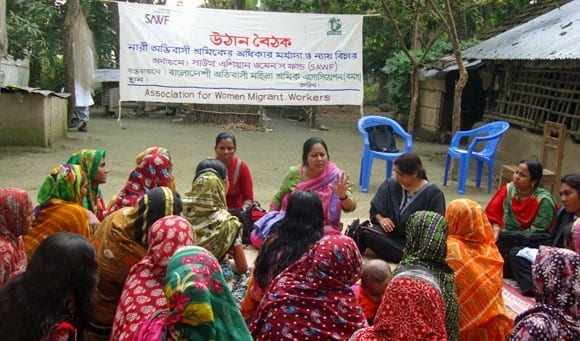Seeking a job to support her family but lacking opportunity in her native Bangladesh, Shahida became a domestic worker far from her home. Beyond duties in her employer’s home, she was forced to work at the houses of several of his relatives, giving her little time to sleep. Shahida was provided stale leftovers for her meals. She faced harassment and abuse from many quarters.
“They misbehaved with me a lot… This was often accompanied by physical abuse,” says Shahida. (See video.)
More than 50 percent of female migrant workers in Bangladesh are employed as domestic workers. Isolated in private homes, they often are targets of violence and abuse because they are women. And as migrant workers, they often face exploitation across the migration experience—from labor recruiters, transport workers, border guards, employers and legal systems that protect employers over workers.
Yet joining with other migrant domestic workers through the Bangladesh Obivashi Mohila Sramik Association (BOMSA), Shahida is now among women demanding gender justice on their jobs, in their communities and at the global level, where they are championing an International Labor Organization standard on gender-based violence at work.
The Solidarity Center is partnering with BOMSA to promote fair migration through awareness-raising, policy reform and improved access to justice under the global labor program supported by the USAID.
By engaging in collective action, Shahida says, “now, we feel empowered.
“We have the power to do what we want to.”

